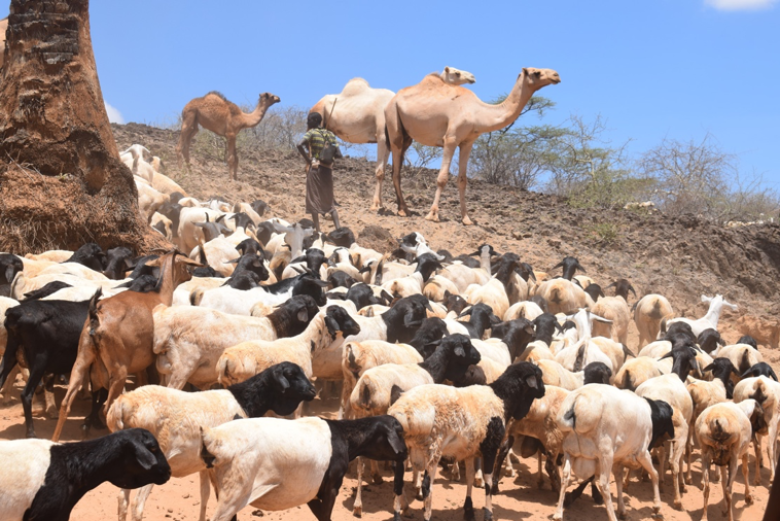Pastoralist communities do not simply ‘cope’ with arid and semi-arid conditions; rather they tailor their production strategies to harness the benefits that variability in rainfall and plant nutrients can offer, to maximize livestock productivity over other livelihoods. Recognizing this, this solution comprises two tools for facilitating bottom-up climate change resource management, in which decision-making and planning is placed in the hands of pastoralists at the ward level. Transferring management power
from the central government to the local level (also known as devolved power) increases capacity of communities to respond rapidly and flexibly in highly variable and sometimes unpredictable climatic conditions – something which is difficult to achieve when such power is centralized and top-down. This solution is published as part of the project Ecosystem-based Adaptation; strengthening the evidence and informing policy, coordinated by IIED, IUCN and UN Environment WCMC.


